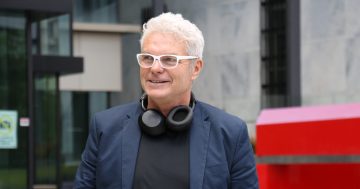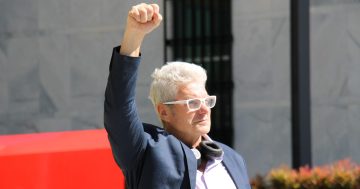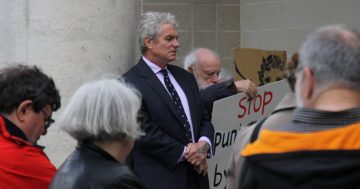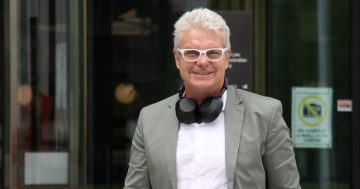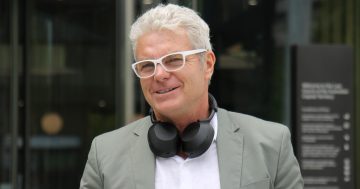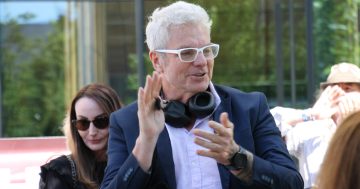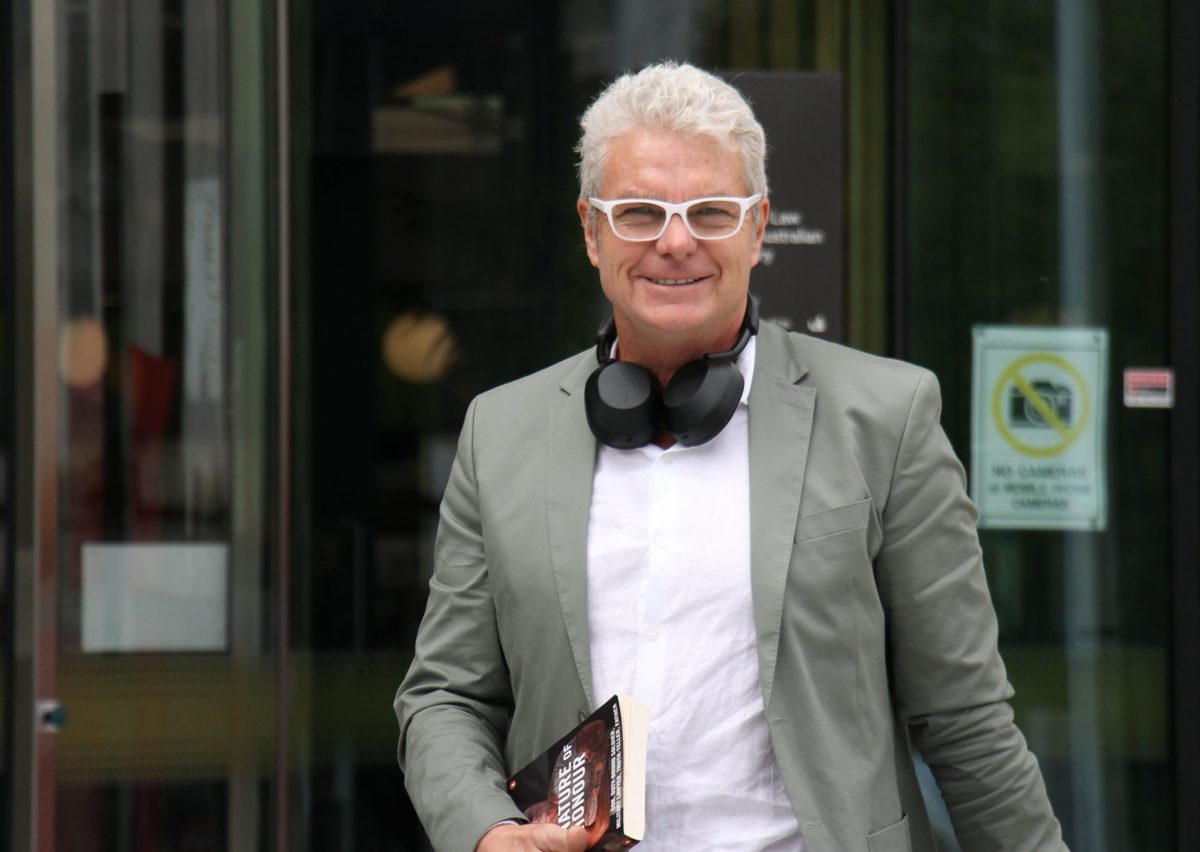
David McBride had asked to appeal decisions of the Supreme Court. Photo: Albert McKnight.
Whistleblower David McBride has been knocked back in his attempt to appeal this week’s court decisions, which mean his trial is currently still planned to proceed.
Mr McBride, who is awaiting a trial that had originally been scheduled to start this week, had sought leave to appeal Justice David Mossop’s decision from Wednesday (15 November).
This involves seeking the court’s approval to take his issues to the ACT Court of Appeal.
This week, his lawyers had argued that due to an official oath he had sworn, there may be circumstances when his duty implied that he could act in the public interest of Australia.
But Justice Mossop told the ACT Supreme Court he would be directing the jury on the basis that there was no aspect of Mr McBride’s role as a military officer that allowed him to act in Australia’s public interest when that was contrary to a lawful order he had been given.
After delivering the decision, the defence lawyers said they would be asking for leave to appeal it, the argument for which was then heard by the Court of Appeal’s Chief Justice Lucy McCallum on Thursday (16 November) and continued to revolve around the question of ‘duty’.
“He believed that he did the right thing, to use his language,” Mr McBride’s barrister Stephen Odgers SC said.
He argued circumstances might arise in which obeying orders would not be in the public interest.
He also argued significant public concern might arise if a member of the defence force had to obey lawful orders, no matter how unreasonable these are, and may commit an offence if they do not.
Prosecutor Patricia McDonald SC, who opposed granting leave, said the oath taken by Mr McBride referred to “well and truly serving the sovereign” but did not encompass what a solider considered to be in the public interest.
“A soldier does not serve the sovereign by promising to do whatever the soldier thinks is in the public interest, even if contrary to laws made by Parliament,” she said.
She suggested it would have been simple for Parliament to include the concept of ‘public interest’ in the oath, if that is what it wanted to do.
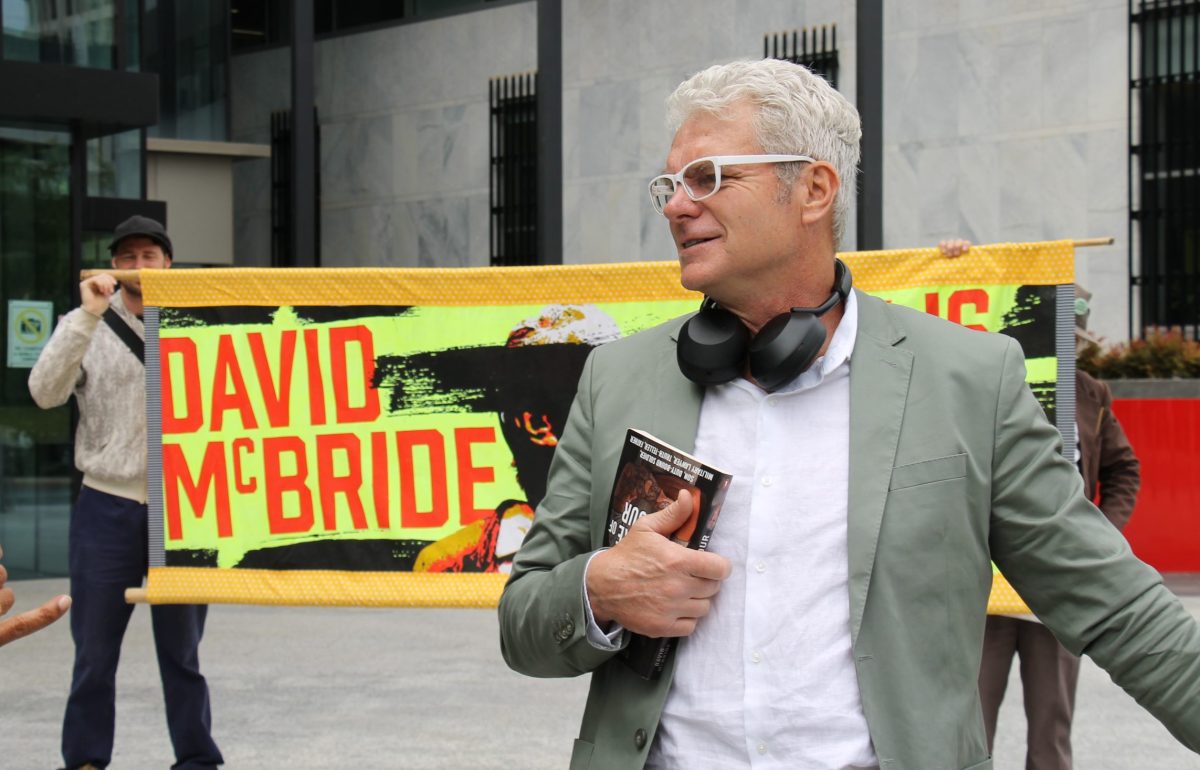
David McBride is fighting the charges against him. Photo: Albert McKnight.
Chief Justice McCallum considered their arguments for an hour before returning to the courtroom and saying she would refuse leave to appeal.
She said none of the lawyers had identified any legal authority on the meaning of ‘duty’, and she had been told there was no such authority for the issue.
She also said Justice Mossop’s ruling on issues raised about the oath was “not obviously wrong”. She ultimately refused leave to appeal.
The lawyers then returned to Justice Mossop to discuss other matters in a closed court.
Mr McBride is accused of providing confidential information to three journalists from 2014 to 2016 during a posting in Canberra while he had been a lawyer and a major in the army.
The prosecution will argue this alleged disclosure was not part of his official duties.
His trial had been scheduled to start on Thursday, before it was moved to Monday (20 November) after his lawyers said they wanted to file for leave to appeal.
Mr McBride has been handed five charges, including three counts of communicating information to someone outside his official duty as a member of the defence force.
He is also charged with single counts of dishonestly appropriating Commonwealth property and disclosing information to a person while not authorised.












